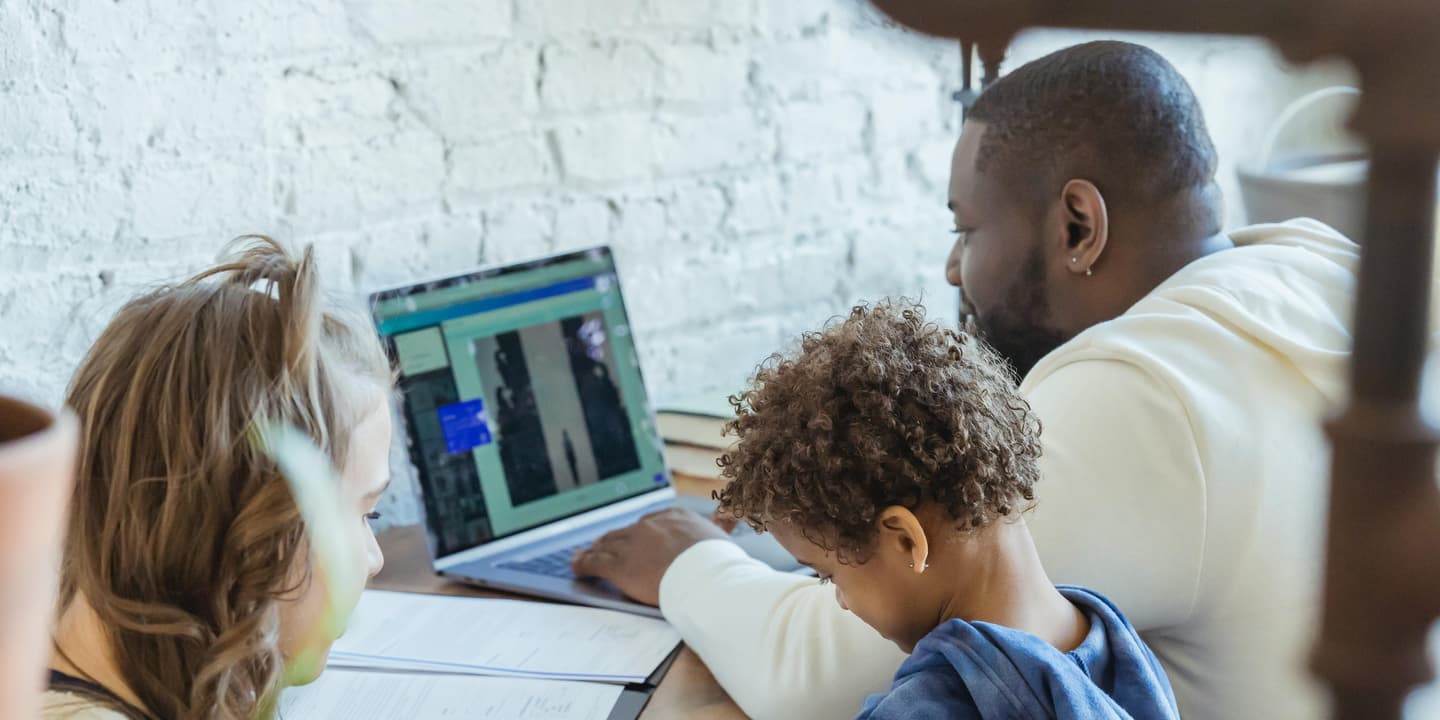The past two years, 2020 and 2021, have undoubtedly challenged us all; some in big ways, some in smaller, yet one thing is true – uncertainty is a new acquaintance in which every person has learned to struggle, cope, and even thrive. On both a personal and professional level, if we were honest, we’d likely describe ourselves as displaying the full spectrum of emotions and reactions over the past 18 months—some good and productive, others not so much. Amidst the fear, the change, and the unknowns, some have found the ability to embrace authenticity and approach the new course ahead of them with strength and empathy.
Propeller Consulting’s PropelHer team hosted a digital engagement opportunity panel on the topic of Living Authentically When Your Course Has Been Rerouted. The three panelists shared insightful, funny, and authentic stories of wisdom they learned in the COVID trenches—all different trenches, but equally relatable stories that engaged and inspired us all.
Here are some key pearls of wisdom shared by these leaders during the panel discussion.
# Lisa’s shared insights and strategies
Speaker Lisa Vanderwerff-Bailey is a physician’s assistant with a background in early child development, neurosurgery, and for the past 12 years, has worked in bariatric surgery at a Portland hospital. She was called into work throughout the pandemic, so her insights gained are from the patient-provider perspective. Lisa is also a breast cancer survivor, wife, and mother of twins. She was on a 14-day cruise in the Panama Canal with her family to celebrate her 10 years of cancer survivorship when the U.S. went into COVID lockdown—and thankfully, they made it home.
“My return to the hospital included a shift into the needed role of symptom screener for arriving patients. The rest of the world seemed hunkered down protecting themselves, so those early months at the hospital were unsettling. I was fearful of contracting COVID and then exposing patients or my family. A couple heart-wrenching and grim realities were the announcement of a mobile mortuary outside the hospital. That, and the observation that so many people were dying unexpectedly and alone, not able to say goodbye or hold the hand of a child or spouse.”
“I’m a creature of habit and I like to know what to expect, something that was just not possible during that time. As the months passed, I found myself adjusting to the “new normal” of constant and daily change by focusing my energy on showing up as the best version of myself—which was something that was within my control.”
“I knew I needed to turn a page. The sooner I could let go of what I couldn’t control, the sooner I’d free up needed energy to be there for the people in front of me—to listen more intently and help find solutions. This proved really helpful not only with patients and colleagues, but with my kids and my husband."
"The second tool I relied on is my innate belief in the best intent of people—that people wake up each day doing the best they can with the information they have. None of us are our best selves when we’re stressed, so I focused on opening my heart and being more empathetic and compassionate, especially in what felt like a polarizing climate of differing opinions and values. In fact, I had to make sure I was checking my own biases at the door first."
"Finally, I intentionally choose to be grateful each day—to name and value everything I have, including the sweet hugs of my kids. It can sound trite, but it makes a difference and is a powerful tool to help me reframe my attitude.”
The sooner I could let go of what I couldn’t control, the sooner I’d free up needed energy to be there for the people in front of me—to listen more intently and help find solutions.
# Jessica’s shared insights and strategies
The second panelist, Jessica Leng, grew up in Vancouver B.C., and now lives in Montreal. Jessica worked in HIV research throughout her undergraduate studies in microbiology and immunology. She launched her career in oncology clinical research and then moved into pediatric and COVID-19 clinical research. Jessica’s insights are gained from her fast promotion to a research role in a new organization, doing time-sensitive pandemic work on a new team she could only collaborate with via Zoom, while speaking in French—which was a rusty language for her.
“My clinical research work is different from Lisa’s front-line patient care in that what we do revolves more around answering the questions of how to improve the standard of care for patients. I started my COVID research role in late June 2020 and yes, it was full of challenges from the outset, including not getting my desktop workstation properly set up on a server till a month in. I had to rely on teammates to send me needed documents and information which sometimes resulted in lengthy delays. Working remotely was a change for me that was frustrating and confusing. But I also knew that it was not productive in any way to linger on what was not working. So, I learned to quickly adapt myself to my current reality.”
“I was part of a large, remote team and I was new, so people tended to forget about me. I learned to proactively ask for what I needed. Also, working remotely, I didn’t have those spontaneous social interactions in the office or lab that I was used to, so I began reaching out to teammates and suggesting virtual coffee breaks. It made me feel closer to my team and it was good for my soul. My effort to share and bond with my team also helped me get faster responses to my email requests! A bonus.”
Working remotely was a change for me that was frustrating and confusing. But I also knew that it was not productive in any way to linger on what was not working. So, I learned to quickly adapt myself to my current reality.
# John’s shared insights and strategies
The third panelist, John Mullen, is a director at Propeller and has been with the firm for four years. He moved to Portland five years ago with his wife to pursue their respective full-time careers in consulting and archeology, and they have since welcomed two sons, ages one and three. They also own and are updating an adjoining duplex to rent. John’s insights revolve around his experience juggling remote work, parenting, home, and rental demands, and learning new ways to support his wife in a true partnership versus the traditional gender roles they were raised with.
“When COVID hit, my wife Cassie and I had full-time roles, a toddler, a baby on the way, a duplex we were renovating to rent, and the desire to have a marriage partnership that looked different from what our folks had—where Cassie could pursue her career. As a director here, I found myself doubling down in my role due to the business pressures in the current economic environment, and so was effectively unavailable at times Cassie needed me. So even before baby #2 arrived, we found ourselves shifting into more gender traditional roles, which prompted arguments (I’m not going to sugar-coat it), reconciliations, and the need to establish a plan, strategies, and healthy boundaries.”
“Even after our second baby was born, we found that we still needed to reaffirm our commitment to our working plan. Our lives were fluid and changing daily and we were learning as we went along. So, we committed to taking productive steps to take care of each other. I became very conscience of and deliberate in my time management. In fact, my team has seen my son Jack and daughter Maddox in my one-on-one calls and that’s OK, it’s my reality, and I’m grateful they are good with that. Cassie and I check in with each other often, asking questions like: how did this week go for you? What can we change or work on to make it go better? We also make sure the other has the time they need for self-care.”
“We are definitely a work in progress and 2020 felt like a crucible for us. It basically accelerated the planning and strategizing we would have done anyway—to have the kind of marriage and parenting partnership that supports each other’s career goals. We haven’t arrived, but we’ve learned a lot in the past 18 months, and we found that communication is key.”
...(2020) basically accelerated the planning and strategizing we would have done anyway—to have the kind of marriage and parenting partnership that supports each other’s career goals.
# Summary
In each case, these leaders were figuring out how to manage COVID-prompted adversity and still show up authentically as their best selves. The beauty of their journey is that it expands beyond COVID and will certainly shape how their future unfolds, and their stories may inspire us to do the same.
We all have the opportunity, in our professional and personal environments, to assess and make proactive changes to our current approach or attitude—in our desire to be our best selves. The COVID impact will consume less and less of our daily lives. And yet, unforeseen changes on the personal and professional front are part of the fabric of our lives. The strategies above give us a glimpse into how we might customize our own best-practice response strategies. Who among us doesn’t want to experience the benefits of more human-to-human, resilient, and compassionate responses to whatever change comes our way? More than ever, these feel like essential skills to last a lifetime.
To watch the full panel discussion, including responses to specific questions posed to these leaders, access the video here.
PropelHer is a force of trailblazing role models and thought leaders uniting to accelerate gender equity through industry. We foster change through career development, mobilization, and networking. Together, we can drive lasting change and create opportunities for education, growth, and connection.



